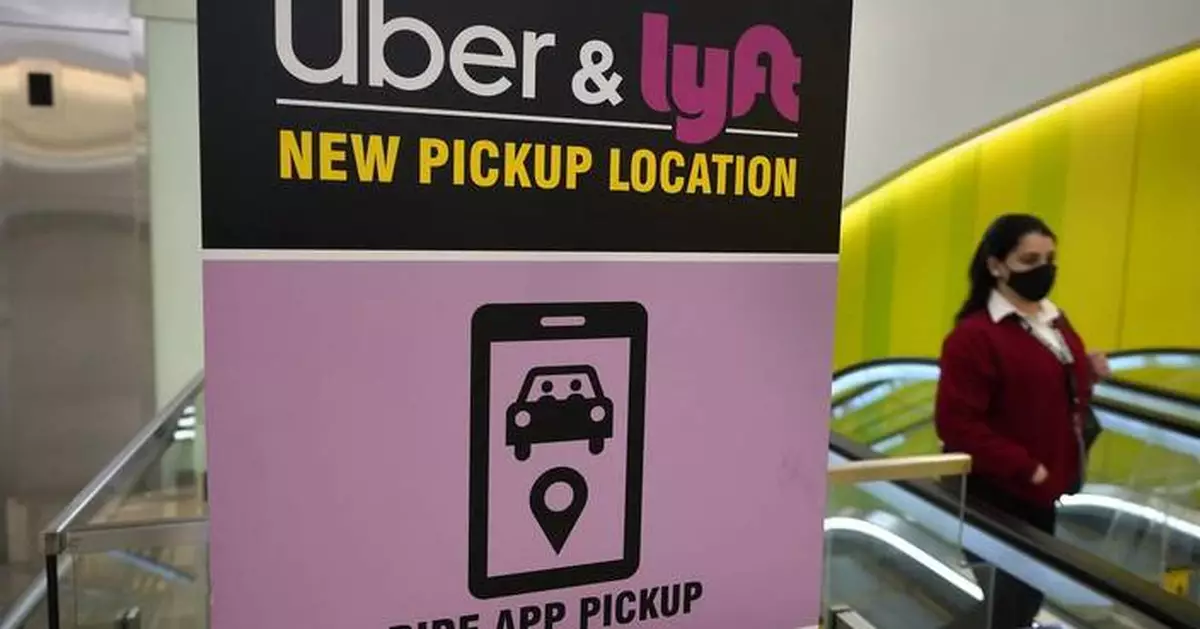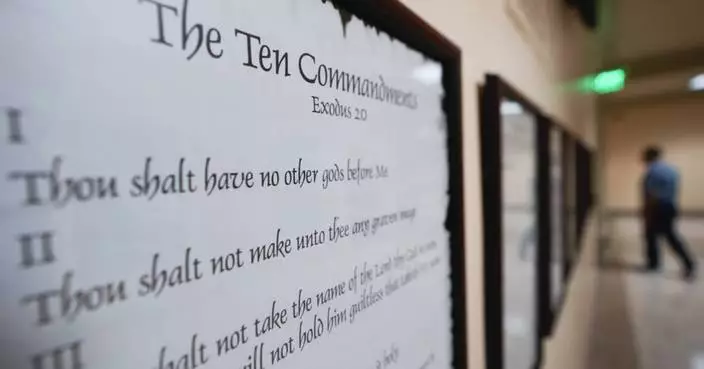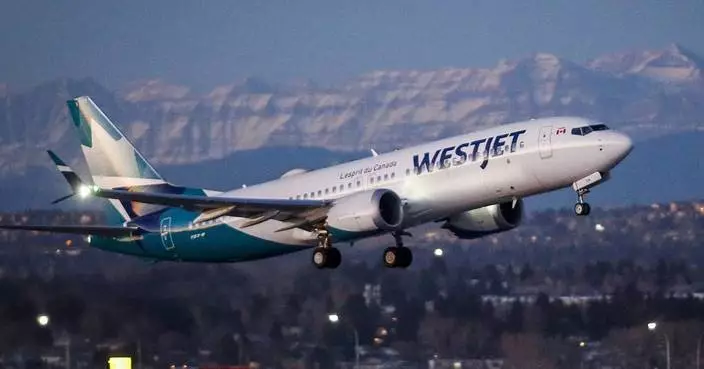BOSTON (AP) — Drivers for Uber and Lyft will earn a minimum pay standard of $32.50 per hour under a settlement announced Thursday by Massachusetts Attorney General Andrea Campbell, in a deal that also includes a suite of benefits and protections.
The two companies will also be required to pay a combined $175 million to the state to resolve allegations that the companies violated Massachusetts wage and hour laws, a substantial majority of which will be distributed to current and former drivers.
Campbell said the settlement resolves her office’s yearslong litigation against the two companies and stops the threat of their attempt to rewrite state employment law by a proposed 2024 ballot initiative.
That question would have resulted in drivers receiving inadequate protections and an earnings standard that would not guarantee minimum wage, she said.
“For years, these companies have underpaid their drivers and denied them basic benefits," Campbell said in a written statement. “Today’s agreement holds Uber and Lyft accountable, and provides their drivers, for the very first time in Massachusetts, guaranteed minimum pay, paid sick leave, occupational accident insurance, and health care stipends.”
Democratic Gov. Maura Healey said the settlement delivers “historic wages and benefits to right the wrongs of the past and ensure drivers are paid fairly going forward.”
In a statement Lyft said the agreement resolves a lawsuit that recently went to trial, and avoids the need for the ballot initiative campaign this November.
“More importantly, it is a major victory in a multiyear campaign by Bay State drivers to secure their right to remain independent, while gaining access to new benefits,” the company said.
Uber also released a statement calling the agreement “an example of what independent, flexible work with dignity should look like in the 21st century.”
“In taking this opportunity, we’ve resolved historical liabilities by constructing a new operating model that balances both flexibility and benefits,” the company said. “This allows both Uber and Massachusetts to move forward in a way that reflects what drivers want and demonstrates to other states what’s possible to achieve.”
The companies were pushing a ballot question that would classify drivers as independent contractors eligible for some benefits, but Campbell said the settlement stops the threat of the ballot question. A competing ballot question seeks to give drivers the right to unionize in Massachusetts.
Drivers will now earn one hour of sick day pay for every 30 hours worked, up to a maximum of 40 hours per year. As part of the agreement, Uber and Lyft must update their driver applications so drivers are able to view and claim their sick leave directly in the app. Drivers will also receive a stipend to buy into the state’s paid family and medical leave program.
Under the deal, Uber and Lyft will also allow drivers to pool together their hours driving for the two companies to obtain access to a health insurance stipend. Anyone who drives for more than 15 hours per week — for either or both companies — will be able to earn a health insurance stipend to pay for a plan on the Massachusetts Health Connector.
Drivers will be eligible for occupational accident insurance paid by the companies for up to $1 million in coverage for work-related injuries.
The agreement also requires the companies to provide drivers with key information — about the length of a trip, the destination and expected earnings — before they are expected to accept a ride.
The companies are barred from discriminating against drivers based on race, religion, national origin, sex, sexual orientation, gender identity, disability or other protected identities — and can't retaliate against drivers who have filed a complaint about the companies with the Attorney General’s Office.
The deal also requires the companies to provide drivers in-app chat support with a live person in English, Spanish, Portuguese and French and must provide drivers with information about why they have been deactivated and create an appeals process.
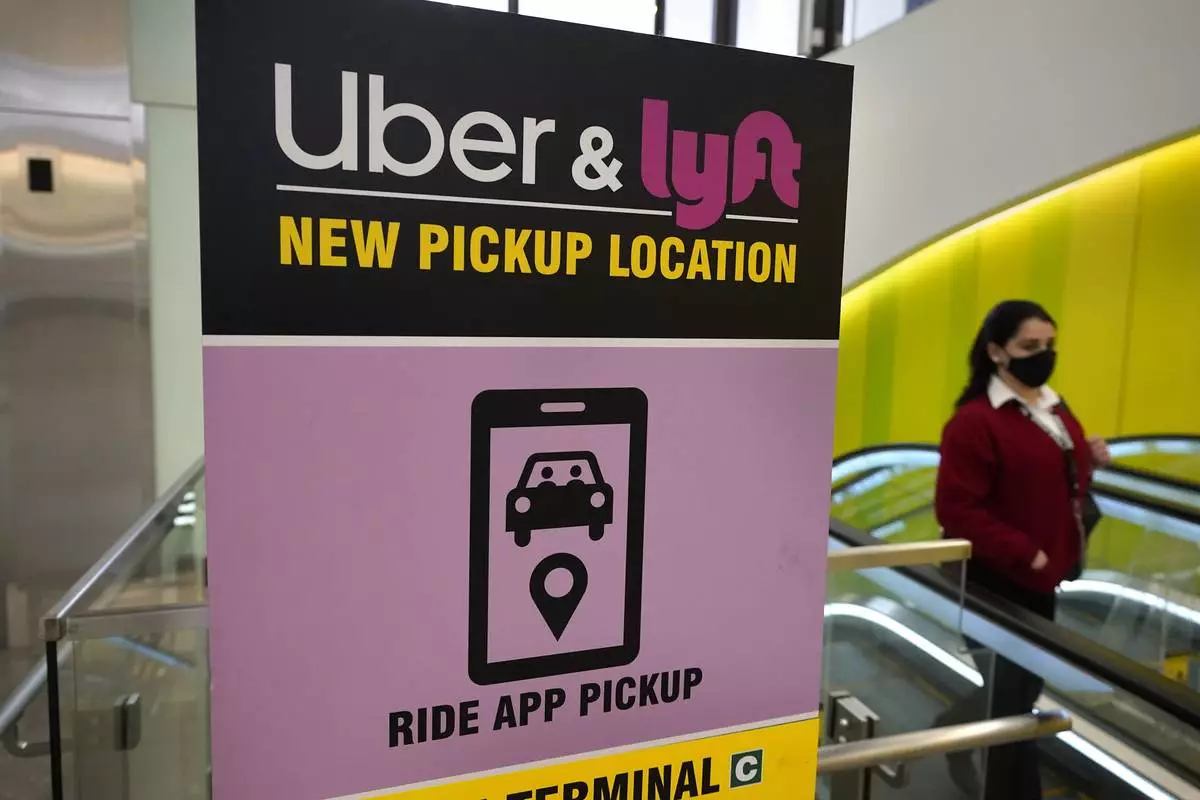
FILE - A passerby walks past a sign offering directions to an Uber and Lyft ride pickup location at an airport, Feb. 9, 2021, in Boston. Drivers for Uber and Lyft will earn a minimum pay standard of $32.50 per hour under a settlement announced, Thursday, June 27, 2024, by Massachusetts Attorney General Andrea Campbell, a deal that also includes a suite of benefits and protections. (AP Photo/Steven Senne, File)
DARTFORD, England (AP) — Distrust has settled over the campaign trails in the United States and United Kingdom ahead of July 4 like a soggy summer haze.
On that day, British voters will choose a new Parliament in an election expected to finish with a Labour government after 14 years under the Conservatives. Americans across the pond, deeply polarized by the rematch between Democratic President Joe Biden and Republican Donald Trump, will mark Independence Day in something resembling unity with barbeques and fireworks ahead of their vote on Nov. 5.
There’s much to celebrate on the Fourth of July for the world’s biggest democracy and the venerable kingdom that gave rise to it, 248 years after they split and set off on slow, troubled journeys toward granting all citizens the right to vote. Both remain rooted in the Magna Carta, the English document signed in 1215. It set in writing the idea that leaders — including kings, presidents and their governments — are not above the law. The nations have become close friends and stalwart allies.
That’s how it started.
As for how it’s going, the run-up to July 4, 2024 — Independence Day for one land, Election Day for the other — offers a snapshot of the stress test facing voters in each country.
“I’m just very disheartened, really, because I don’t think any of the parties know what they’re doing,” Dartford, England, resident Jacqueline Richards, 77, said of her country’s election. “But then looking at yours in America, it’s not that great, is it?”
Every democratic election is, at its core, about who voters trust to run their country so they can go about running their lives.
Debates are candidate aptitude tests in real time, never more so than during Thursday’s showdown between Biden, 81, and Trump, 77. Biden’s halting performance did the opposite of building confidence, even among some of his most loyal supporters. Trump, meanwhile, repeated his lies about the Jan. 6, 2021, insurrection and his record as president.
That’s only the most recent example of why distrust and a sense of resignation dominate the emotional landscape in both countries, according to voters interviewed by The Associated Press in recent weeks. From battleground Wisconsin to bellwether Dartford, England, voters said years of misinformation, scandal and lies have drained them of the sort of optimism or excitement they might once have felt about the right to vote or the future.
In Britain, 45% said they “almost never” trust governments to put the nation’s interest first, up from 34% in 2019, according to a survey published June 12 by the National Centre for Social Research. The pandemic, the Russia-Ukraine War and the country’s cost-of-living crisis affected living standards and the economy, it reported. Two Tory prime ministers were ousted. Also, there was Boris Johnson, who resigned rather than be thrown out of Parliament over boozy parties at 10 Downing Street when the nation was under COVID-19 lockdown.
A vote to turn the Conservative government out of power is not necessarily a vote for Labour, opposition leader Keir Starmer acknowledged during a May 27 debate. Voters, he said, “still have questions about us: Has Labour changed enough? Do I trust them with my money, our borders, our security?”
Starmer’s own answer was yes, of course. But British voters told the AP in the weeks before the election that they’re far from sure.
“They promise and promise and promise and nothing ever changes,” said Shane Bassett, 34, the bar manager at a pub in bellwether Dartford, England, where the Peasants’ Revolt of 1381 is said to have started. “No matter who gets in — if it’s Labour, if it’s Conservative, it’s all the same. They all lie.”
In the United States, trust has been eroded by deepening political polarization, misinformation and Trump’s lies about Biden’s victory in the 2020 election — all amplified by social media.
Roughly 2 in 10 Americans say they trust the U.S. government to do what is right “just about always” or “most of the time,” according to a recent Pew Research Center survey. About 6 in 10 say they can trust the government “only some of the time” and about 2 in 10 say they can never trust the government to do what’s right.
Nearly three-quarters of American adults blame the news media for dividing the nation, according to a 2023 poll by AP-NORC. Families and friends have learned to avoid discussing politics around Thanksgiving tables and other gatherings. In many places, even celebrations of the Fourth of July — a national holiday when Americans mark the 1776 ratification of the Declaration of Independence from Britain — fall under this practice of restraint.
In Racine, Wis., Rebecca Eisel, 48, wondered how the vast United States, home of 262 million eligible voters and the world’s biggest economy, faces a rematch that few Americans wanted.
“How did our democratic process result in something that the majority of the population doesn’t like?” Eisel, 48, said over a sandwich at the Maple Table restaurant.
The last time Kathleen Barker, 64, was excited about a candidate, it was Ronald Reagan, who went on to serve two terms in the 1980s and exited office by referring to the country as a “shining city on a hill.”
“He was a very real person, very respectful, family-oriented,” she said while walking her dog near the river in Racine. “You could relate to him. He felt like just that average man.”
Now, she says, the “nasty back-and-forth” between Biden and Trump — who each insist the other is unfit for office — suggest neither can be trusted to dig into the major problems facing the United States.
“People are poor. The country is struggling. And this is their focus?” she said.
Emmanuel McKinstry, a 58-year-old businessperson, voiced similar frustration. The economy, he said while waiting in line to hear Trump speak in Racine, is his top issue. The next morning, McKinstry said he’d still vote for Trump — with reservations.
“I’m tired of politicians working for themselves and not really getting down and asking people what we really want,” McKinstry said. “We’re putting you in office. What are you gonna do for us?”
The last presidential candidate to excite high school teacher Marcus T. West, 49, was Democrat Barack Obama, who went on to serve two terms.
“He got the importance of educators. He had good intentions,” West said over breakfast at Mrs. Betty’s Kitchen. “He’s the last person I felt talked like me, talked to me, passed policies that I liked.”
This year, he said of Biden and Trump, “they aren’t looking out for us.”
In Britain, the distrust is less personal. It’s about scandal — think Johnson and “partygate” — and the cost-of-living crisis.
On May 22, Prime Minister Rishi Sunak had good news and a bombshell: Inflation was down to 2.3% for the first time in three years, and he was dissolving Parliament immediately, which started a clock that required an election on July 4.
But the visuals are what’s remembered about that day. Rain soaked his suited shoulders as Sunak spoke where his predecessors had stood for 275 years, before the iconic black door of No. 10 Downing Street. No one sheltered him with an umbrella. Protesters nearly drowned out his words by playing “Things Can Only Get Better,” a rival Labour campaign song used in the Tony Blair era.
“Things can only get wetter,” led the reports on several news sites.
That’s what concerns Bassett, the manager at the Wat Tyler Pub, named for a leader of the Peasants’ Revolt that started on that site. You’re not supposed to talk about politics in British pubs, he says — the counterpart, perhaps, of the American reluctance to stir up trouble on the same topic at parties.
But Bassett looked around at the empty dining room at lunch time. There were no customers to offend. So he let it fly.
The pub’s energy bill last winter jumped from its usual 800 pounds a month (about $1,000) to 1,200 pounds (about $1,500). It has struggled since the Christmas season to bring in customers for a quality, 4.50 beer. He thinks the owners are likely to sell the place only four years after buying it.
“I’m not very optimistic.” he said. Thinking of his family members in Canada, Bassett added: “If I could leave the country, I would.”
Fernando reported from Racine, Wisconsin. AP writer Jill Lawless contributed from London.
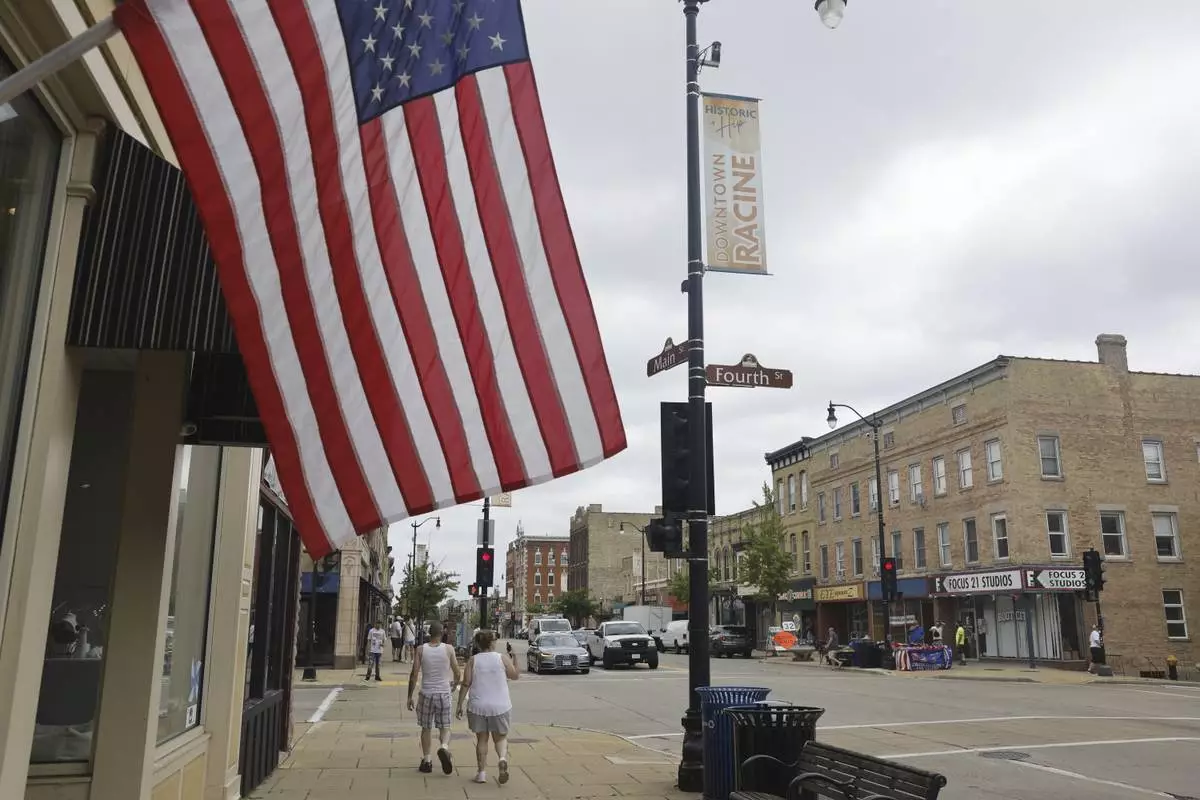
A general view of downtown Racine Tuesday, June 18, 2024, in Racine, Wis. (AP Photo/Jeffrey Phelps)
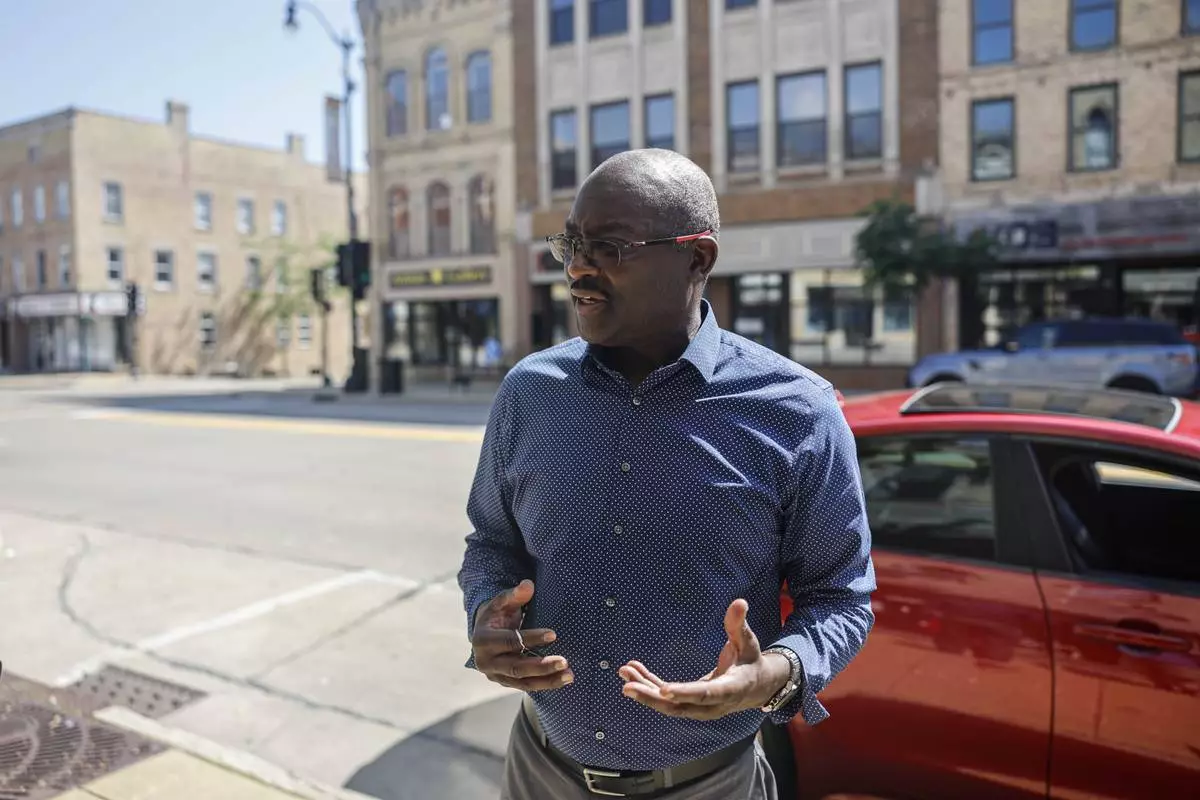
Emmanuel McKinstry speaks about the upcoming election Wednesday, June 19, 2024, in downtown Racine, Wis. (AP Photo/Jeffrey Phelps)
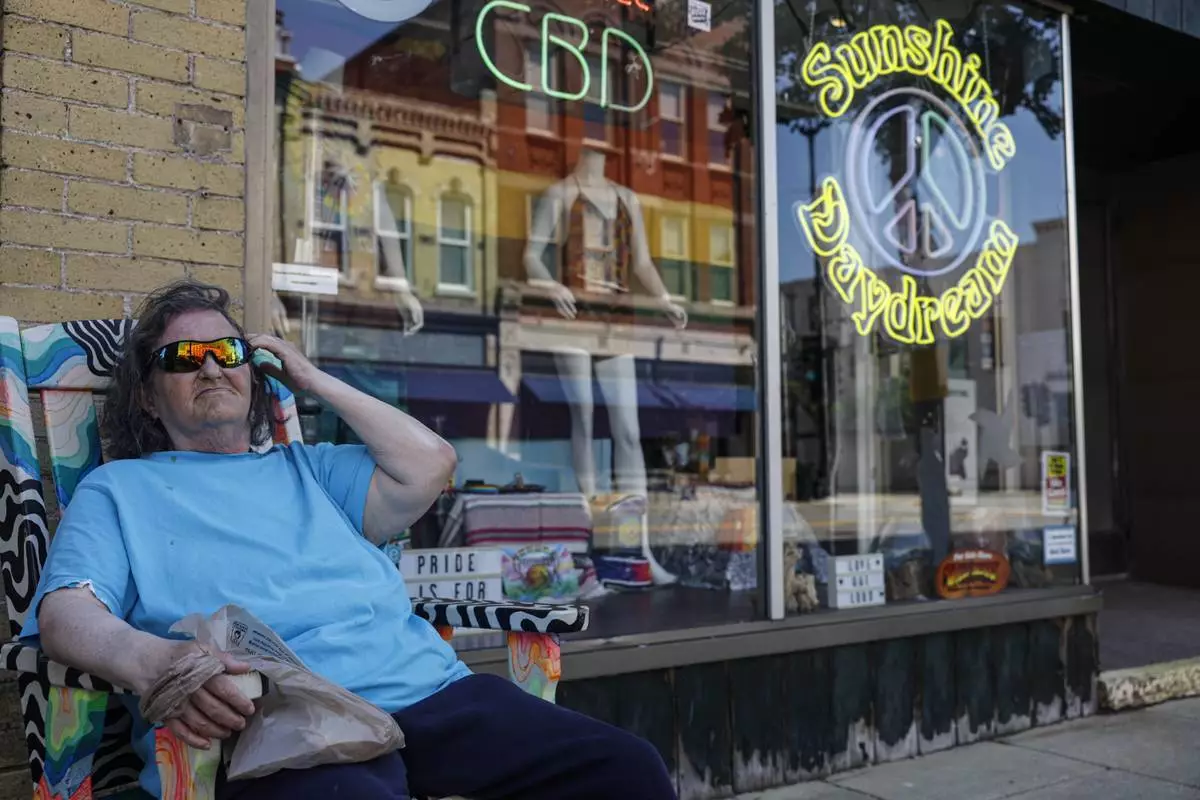
Robin Mitchell sitting outside a business speaks about the upcoming election Wednesday, June 19, 2024, in Racine, Wis. (AP Photo/Jeffrey Phelps)
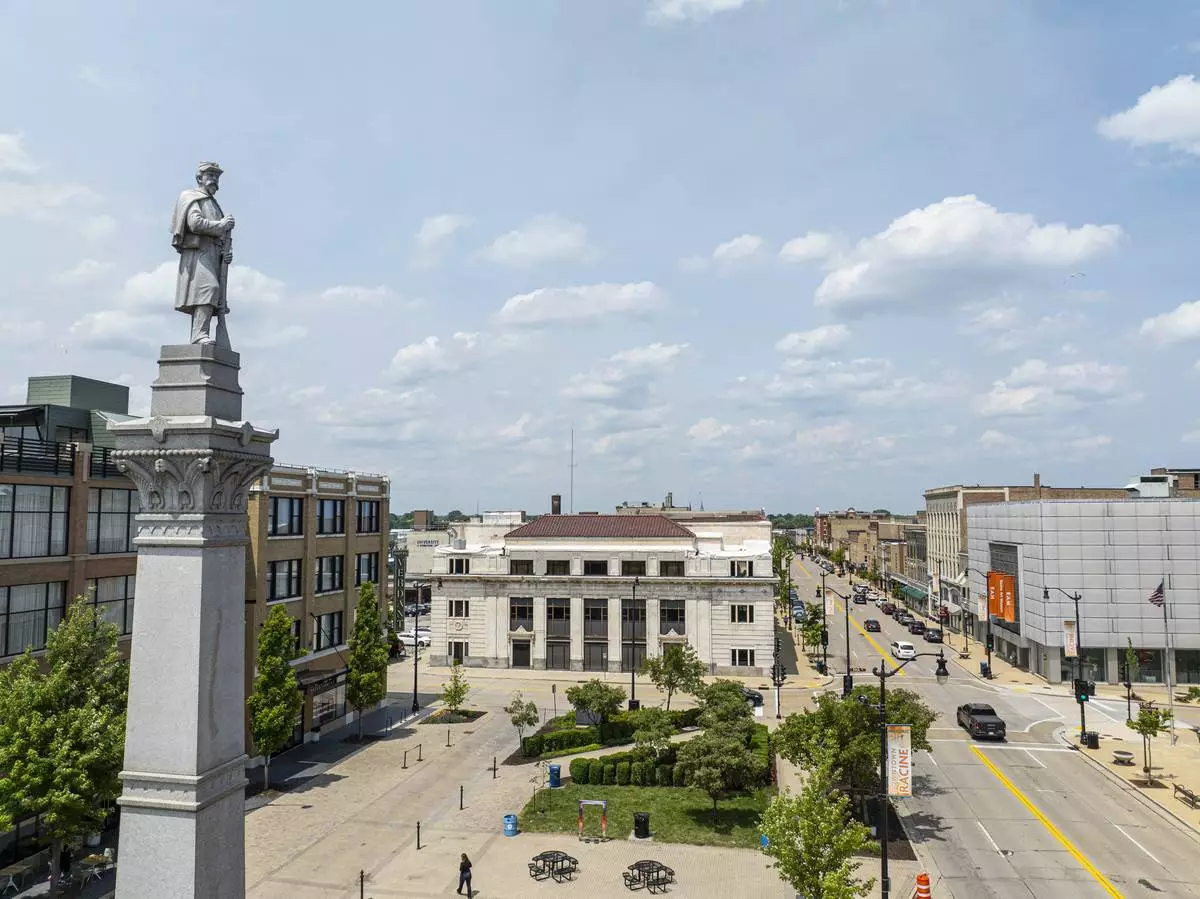
A general view of downtown Racine Wednesday, June 19, 2024, in Racine, Wis. (AP Photo/Jeffrey Phelps)
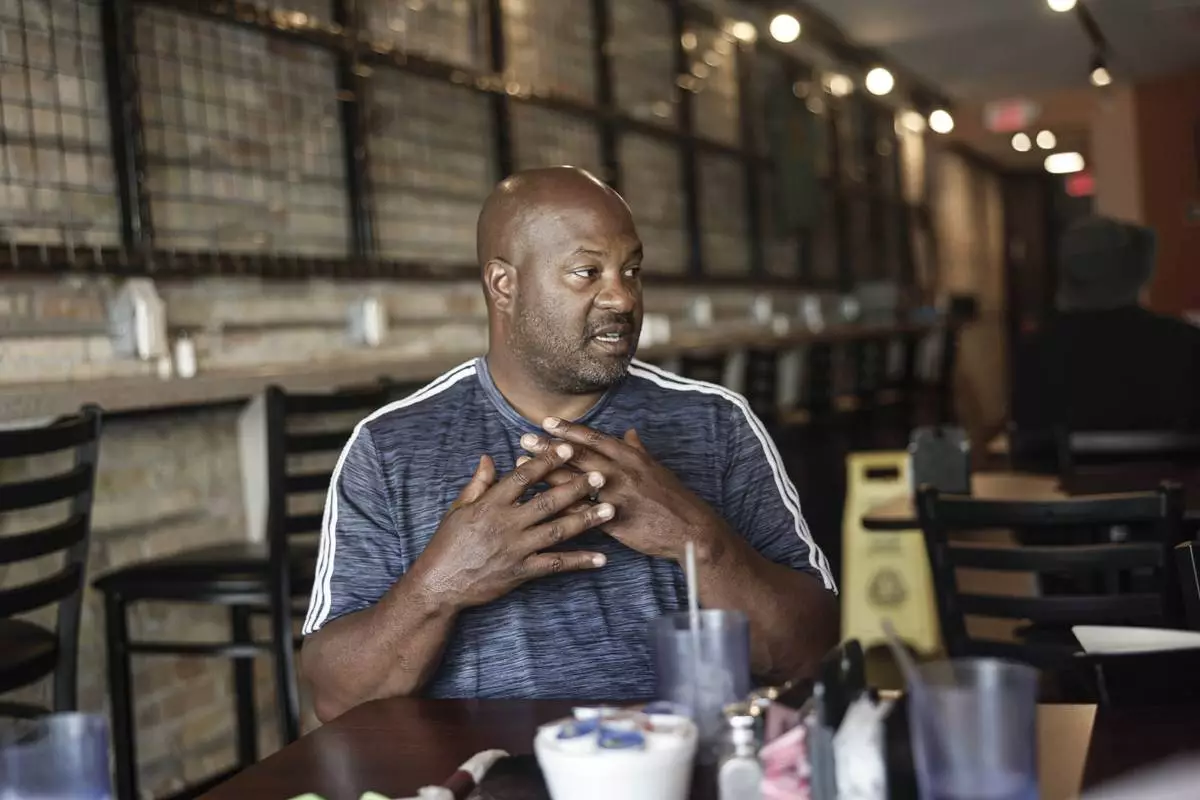
Marcus T. West speaks about the upcoming election Wednesday, June 19, 2024, in Racine, Wis. (AP Photo/Jeffrey Phelps)
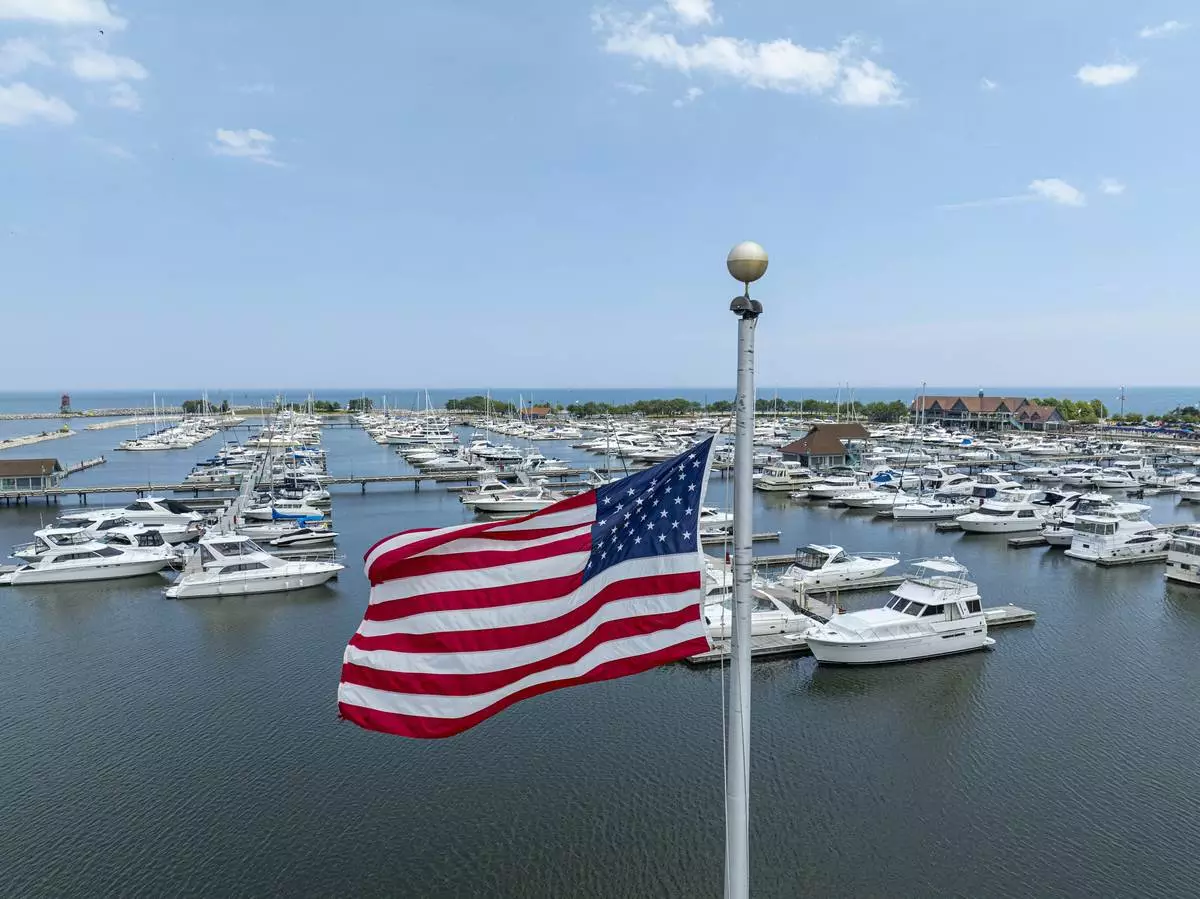
A general view of the marina Wednesday, June 19, 2024, in Racine, Wis. (AP Photo/Jeffrey Phelps)
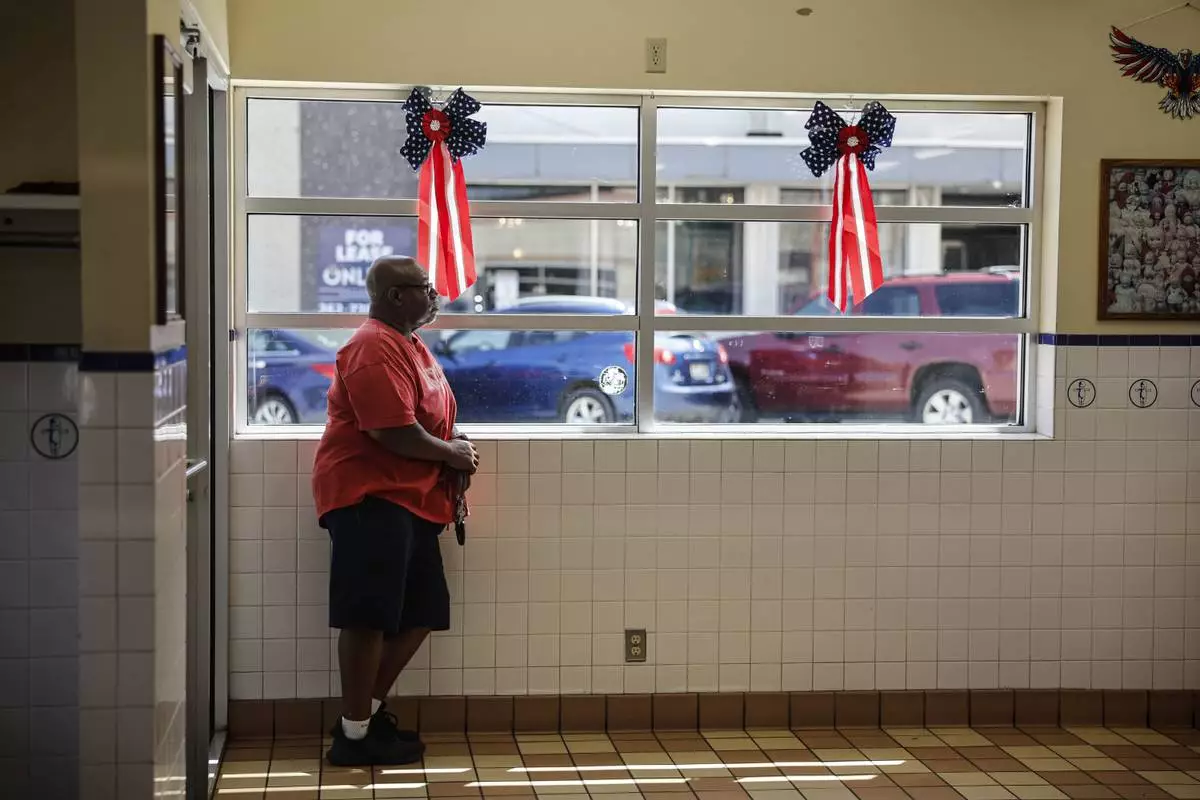
A man waits for his order inside a restaurant Wednesday, June 19, 2024, in downtown Racine, Wis. (AP Photo/Jeffrey Phelps)
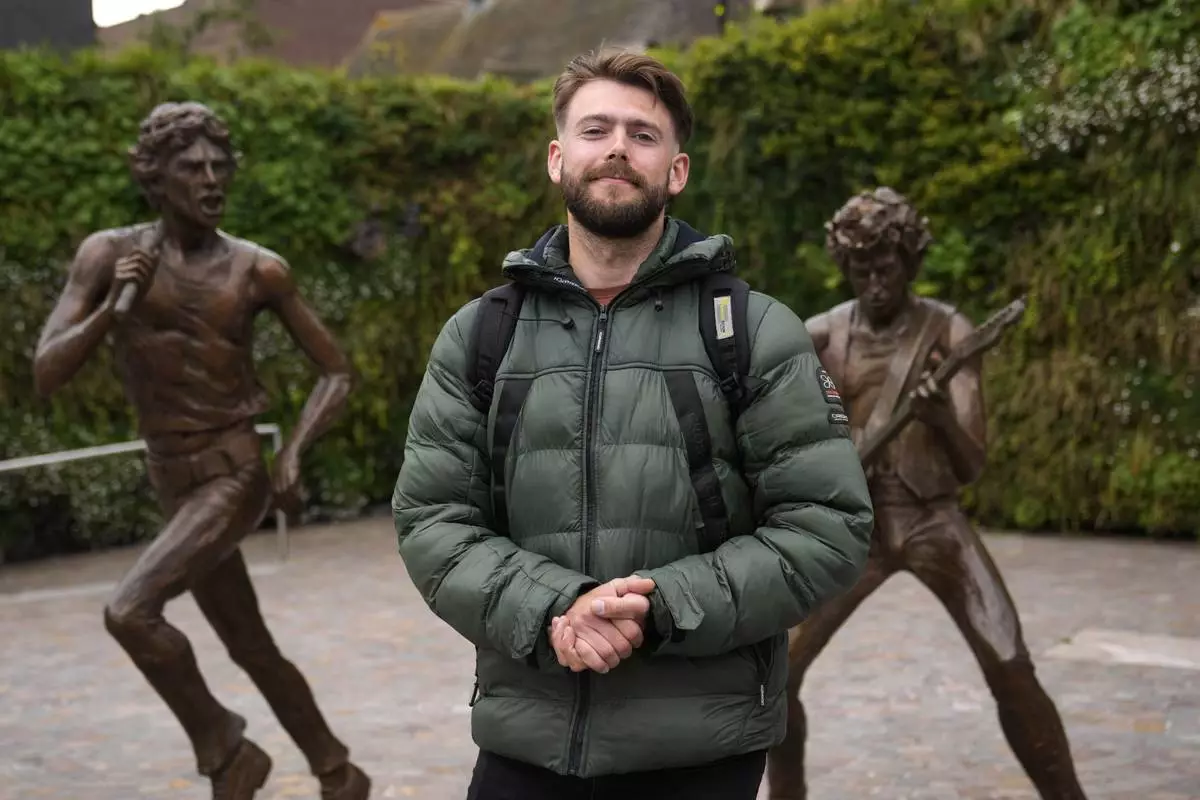
Harry Colville, 27, a construction worker, poses for a photograph during an interview in Dartford, London, Wednesday, June 12, 2024. Distrust saturates the campaign trails in the United States and Great Britain like the dense summer heat as each country, rooted in the Magna Carta, revolution and a "special relationship," hurtle toward democratic elections. Brits go to the polls July 4 -- as Americans celebrate their independence with barbeques and fireworks ahead of the U.S. presidential election in November. In both places, voters articulated a striking lack of optimism that the winners will represent their wishes. (AP Photo/Kin Cheung)
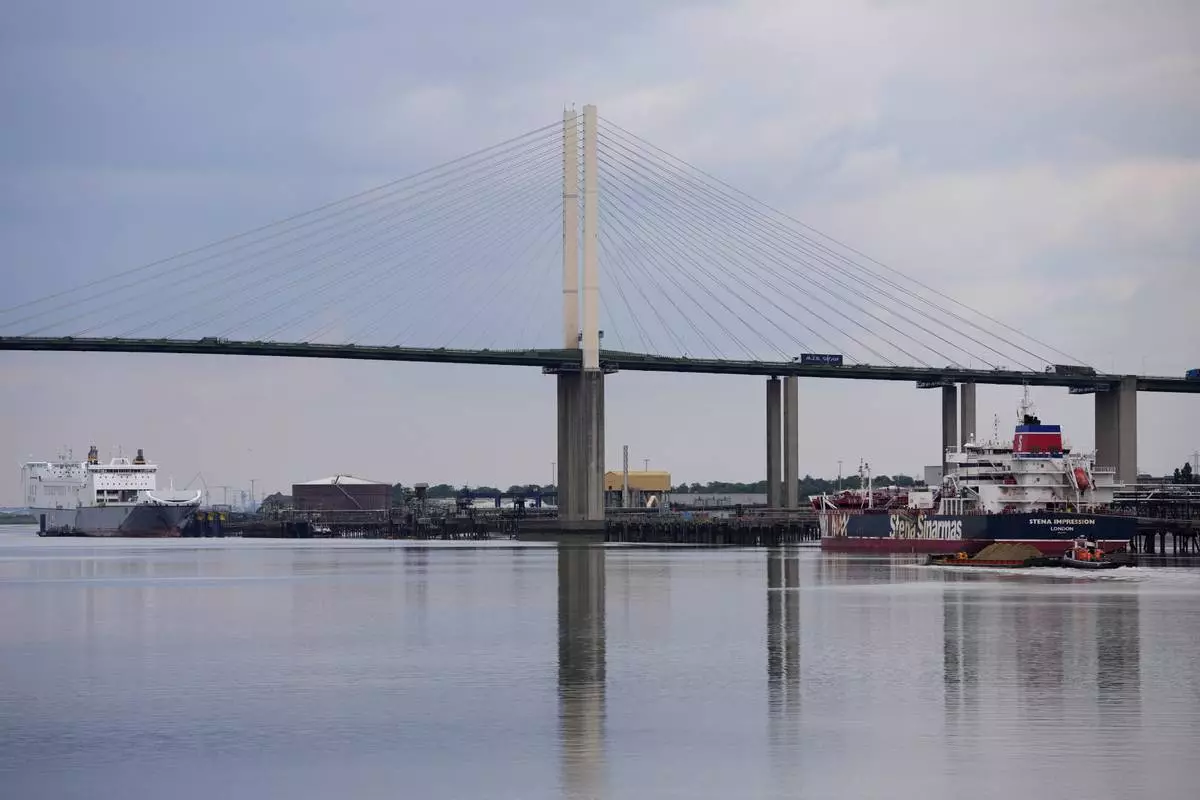
Dartford Crossing is seen in Dartford, London, Wednesday, June 12, 2024.Distrust saturates the campaign trails in the United States and Great Britain like the dense summer heat as each country, rooted in the Magna Carta, revolution and a "special relationship," hurtle toward democratic elections. Brits go to the polls July 4 -- as Americans celebrate their independence with barbeques and fireworks ahead of the U.S. presidential election in November. In both places, voters articulated a striking lack of optimism that the winners will represent their wishes. (AP Photo/Kin Cheung)
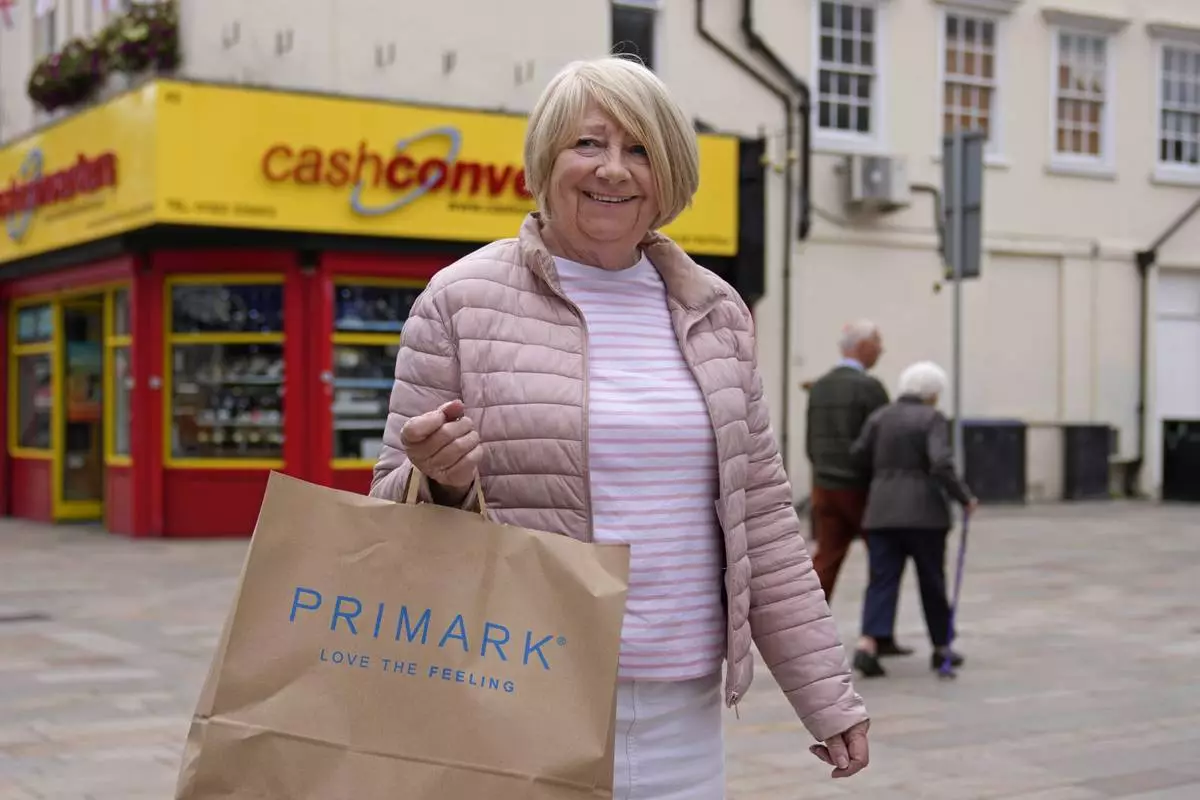
Jacqueline Richards, 77, poses for a photograph during an interview in Dartford, London, Wednesday, June 12, 2024. Distrust saturates the campaign trails in the United States and Great Britain like the dense summer heat as each country, rooted in the Magna Carta, revolution and a "special relationship," hurtle toward democratic elections. Brits go to the polls July 4 -- as Americans celebrate their independence with barbeques and fireworks ahead of the U.S. presidential election in November. In both places, voters articulated a striking lack of optimism that the winners will represent their wishes. (AP Photo/Kin Cheung)
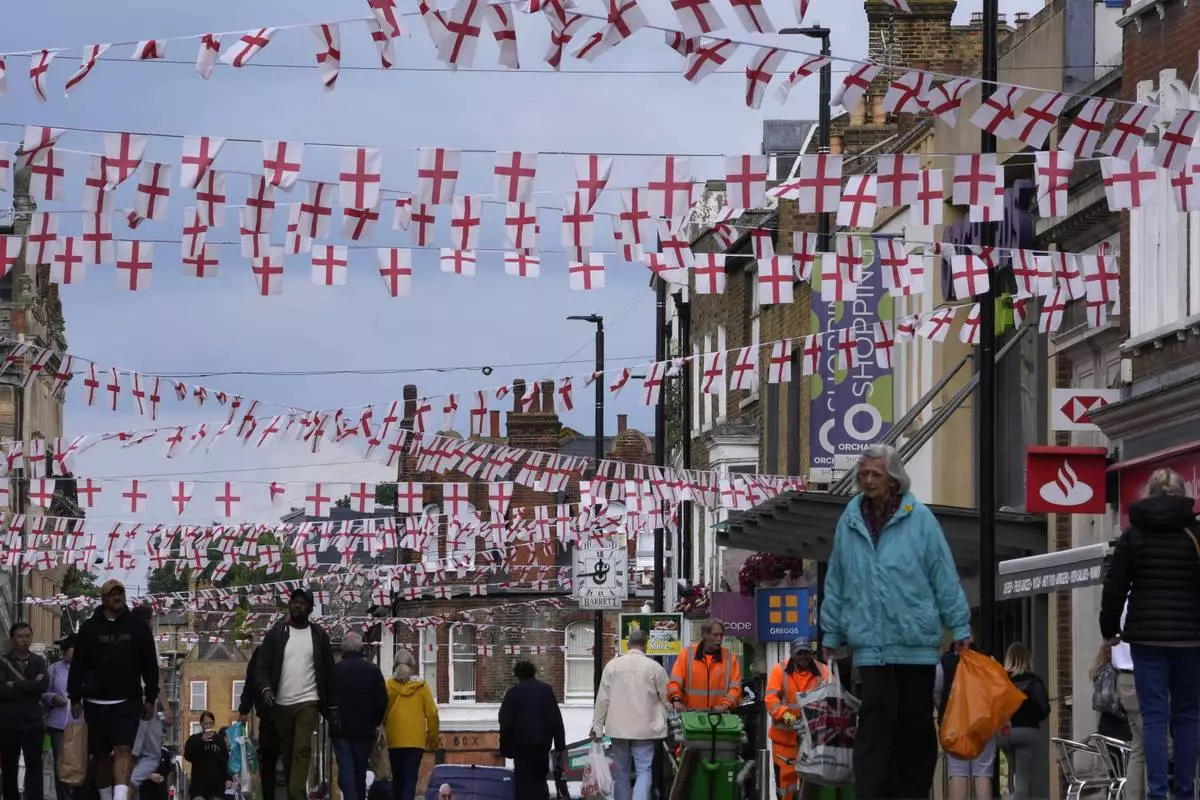
People walk alone the street in Dartford, London, Wednesday, June 12, 2024.Distrust saturates the campaign trails in the United States and Great Britain like the dense summer heat as each country, rooted in the Magna Carta, revolution and a "special relationship," hurtle toward democratic elections. Brits go to the polls July 4 -- as Americans celebrate their independence with barbeques and fireworks ahead of the U.S. presidential election in November. In both places, voters articulated a striking lack of optimism that the winners will represent their wishes. (AP Photo/Kin Cheung)



